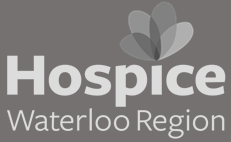Updated Quality Standard – Palliative Care: Care for Adults with a Serious Illness
Health Quality Ontario is now part of Ontario Health (OH), an agency created by the Government of Ontario with a mandate to connect and coordinate our province’s health care system to help ensure that Ontarians receive the best possible care. OH and the Ontario Palliative Care Network (OPCN) have released a 2024 update for the quality standards. Quality standards are sets of concise statements designed to help health care teams easily and quickly know what care to provide, based on the best evidence. See Quality Statements (QS) for Palliative Care below:
2023-24 Updates
- Clinical practice guidelines and health technology assessments
- Formatting to align with current Ontario Health branding
- Links, secondary references, data sources & associated resources
- Palliative conditions
- Definitions
- Terminology
From:
-People living with a progressive, life-limiting illness
-Interdisciplinary
-Caregiver
-People with a serious illness
-Interprofessional
-Care Partner
Quality Standards Resources
- Palliative Care Quality Standard
- Patient Guide
- Placemat
- Getting Started Guide
- Case for Improvement
- Technical Specifications
Quality Statements for Palliative Care
- QS 1: Identification and Assessment of Needs People with a serious illness have their palliative care needs identified early through a comprehensive and holistic assessment.
- QS 2: Timely Access to Palliative Care Support People with identified palliative care needs have access to palliative care support 24 hours a day, 7 days a week.
- QS 3: Advance Care Planning – Substitute Decision-Maker (SDM) People with a serious illness know who their future SDM is. They engage in ongoing communication with their SDM about their wishes, values, and beliefs, so that the SDM is empowered to participate in the health care consent process if required.
- QS 4: Goals-of-Care Discussions and Consent People with identified palliative care needs or their SDMs have discussions with their interprofessional health care team about their goals of care to help inform their health care decisions. These values-based discussions focus on ensuring an accurate understanding of both the illness and the treatment options so the person or their SDM has the information they need to give or refuse consent to treatment.
- QS 5: Individualized, Person-Centred Care Plan People with identified palliative care needs collaborate with their primary care provider and other health care professionals to develop an individualized, person-centred care plan that is reviewed and updated regularly.
- QS 6: Management of Pain and Other Symptoms People with identified palliative care needs have their pain and other symptoms managed effectively, in a timely manner.
- QS 7: Psychosocial Aspects of Care People with identified palliative care needs receive timely psychosocial support to address their mental, emotional, social, cultural, and spiritual needs.
- QS 8: Education for People With a Serious Illness, Substitute Decision-Makers, Families, and Care Partners People with a serious illness, their future SDM, their family, and their care partners are offered education about palliative care and information about available resources and supports.
- QS 9: Care Partner Support Families and care partners of people with identified palliative care needs are offered ongoing assessment of their needs, and are given access to resources, respite care, and grief and bereavement support, consistent with their preferences.
- QS 10: Transitions in Care People with identified palliative care needs experience seamless transitions in care that are coordinated effectively among settings and health care providers.
- QS 11: Setting of Care and Place of Death People with identified palliative care needs, their SDM, their family, and their care partners have ongoing discussions with their health care professionals about their preferred setting of care and place of death.
- QS 12: Interprofessional Team-Based Care People with identified palliative care needs receive integrated care from an interprofessional team, which includes volunteers.
- QS 13: Education for Health Care Providers and Volunteers People receive palliative care from health care providers and volunteers who possess the appropriate knowledge and skills to deliver high-quality palliative care.
Resource
Health Quality Ontario – Evidence to Improve Care
Download Tip of the Month
PDF – Updated Quality Standard for Palliative Care: Care for Adults with a Serious Illness




